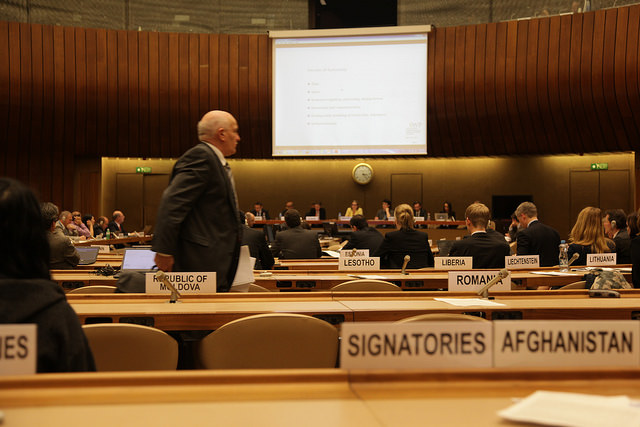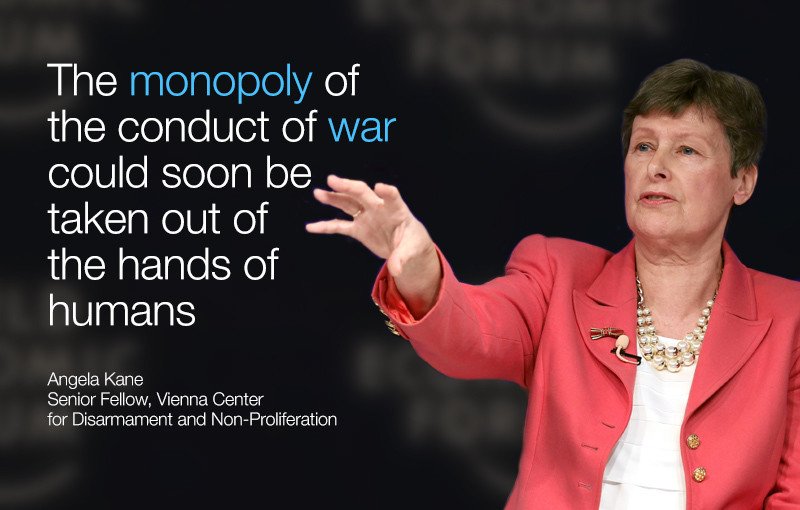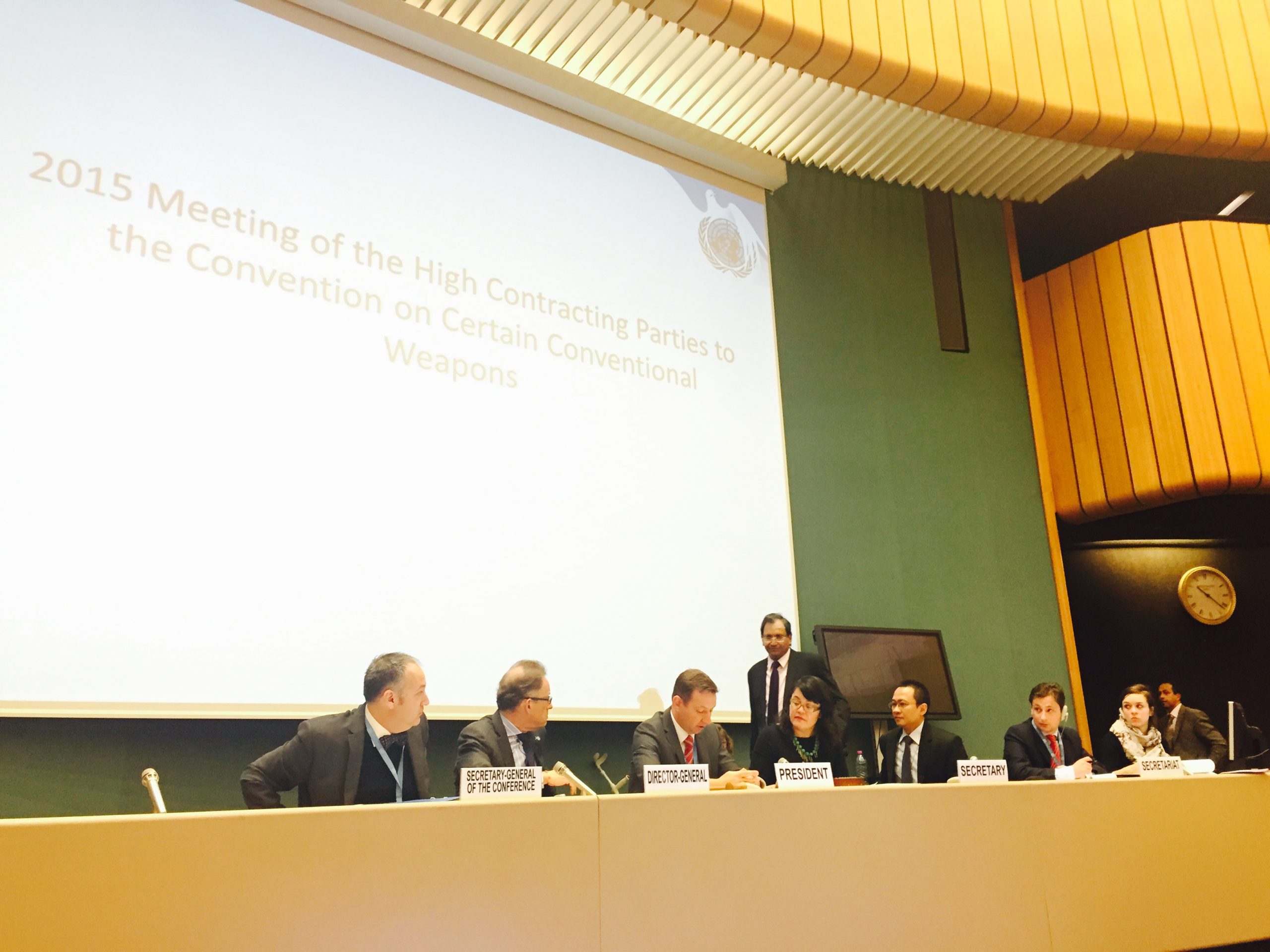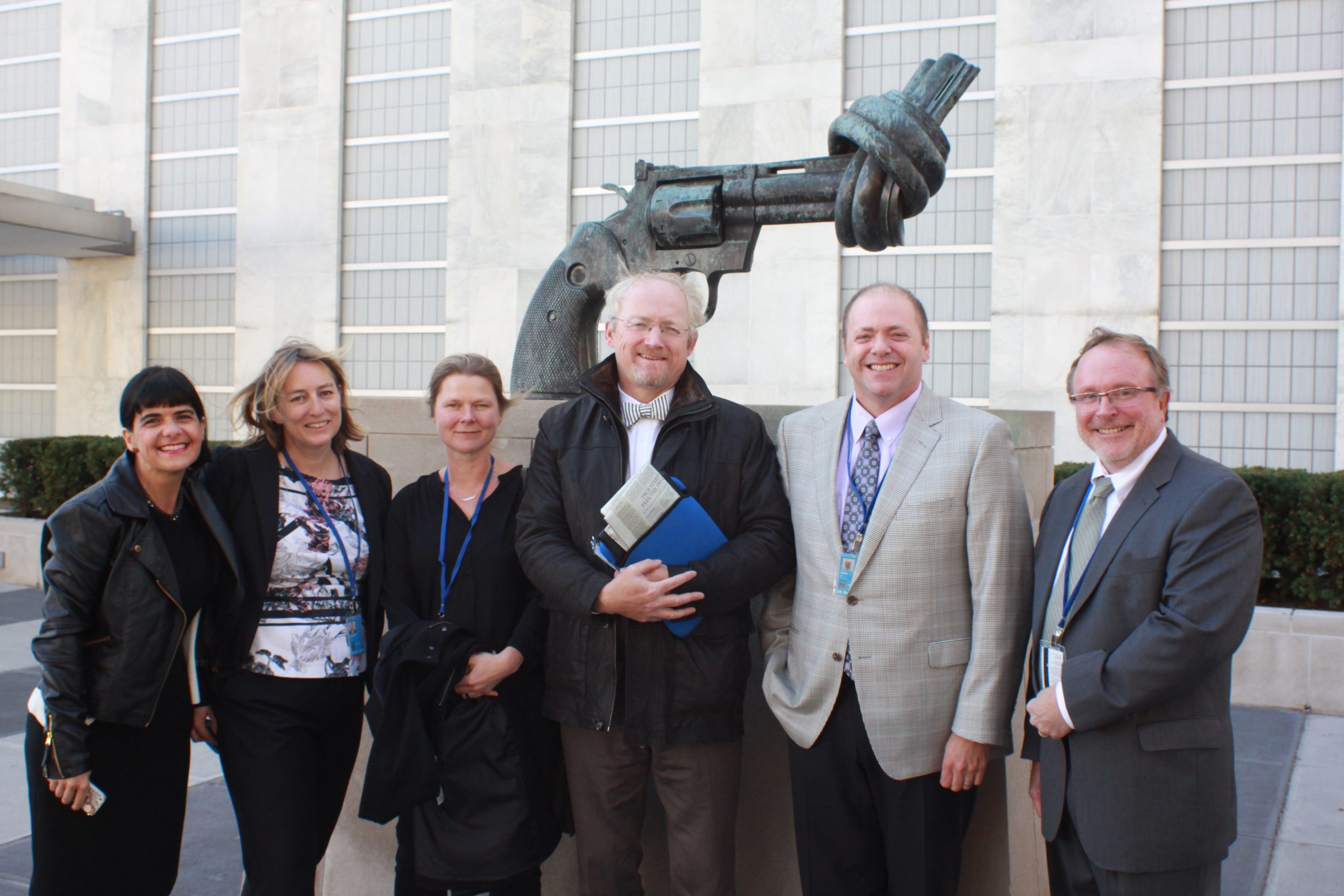More states have raised autonomous weapons concerns at the UN General Assembly First Committee on Disarmament and International Security this year than in the past two years, according to a Campaign to Stop Killer Robots review of statements from the 2015 session, which concludes on 9 November.
More than 30 states and five groups of states have included autonomous weapons in their statements during First Committee, in addition to the International Committee of the Red Cross and Campaign to Stop Killer Robots. Botswana, Kuwait, Lebanon, and Romania elaborated their views on autonomous weapons for the first time, making a total of 62 states that have spoken on this topic since 2013. At the previous First Committee session in 2014, 23 states raised killer robots concerns while 16 did so in 2013. Relevant extracts from the 2015 statements follow below.
Almost all states that spoke on the matter have expressed support for more discussions on autonomous weapons in 2016 at the Convention on Conventional Weapons (CCW). At the CCW on 13 November, states will decide whether to keep going with the talks on lethal autonomous weapons systems ahead of the CCW's Fifth Review Conference in December 2016.









